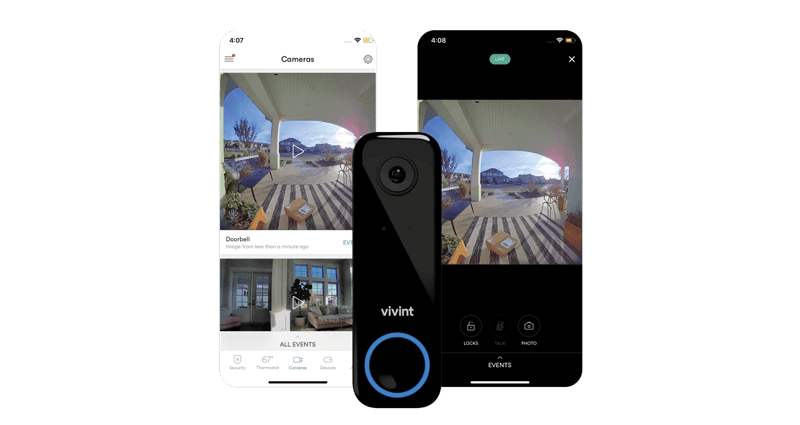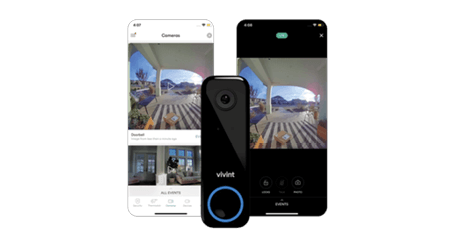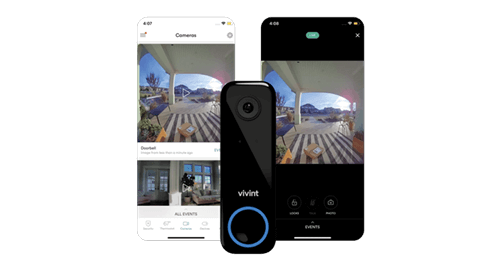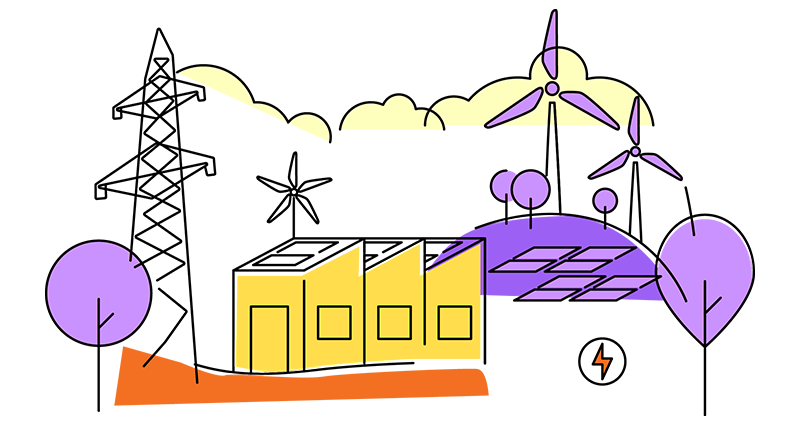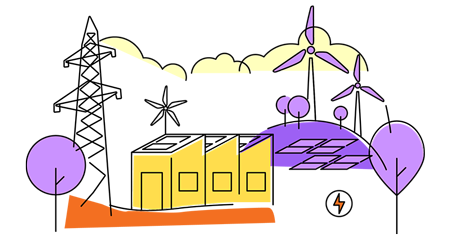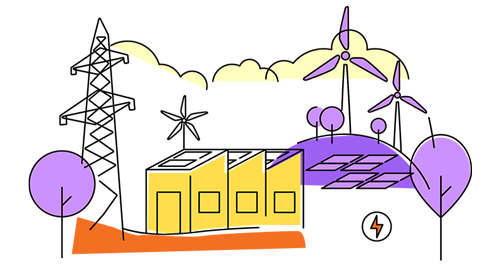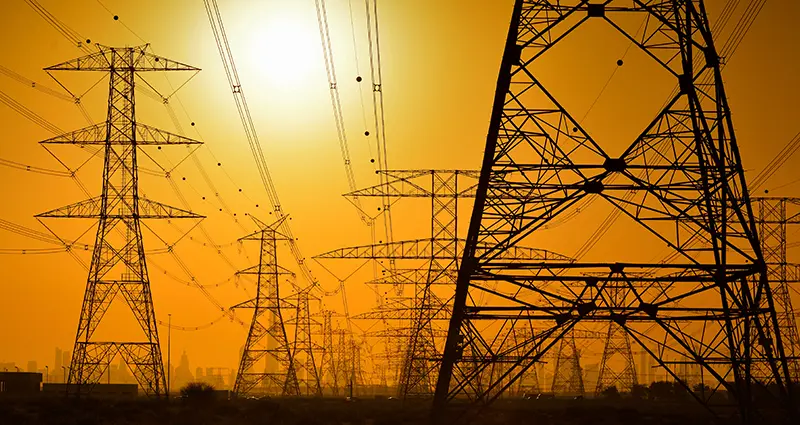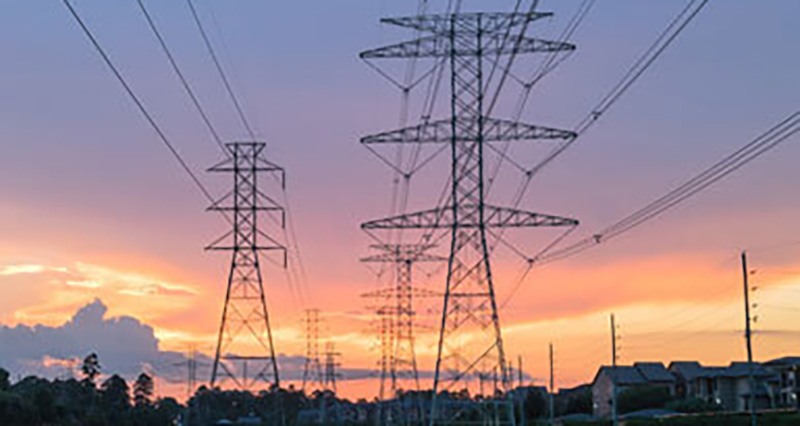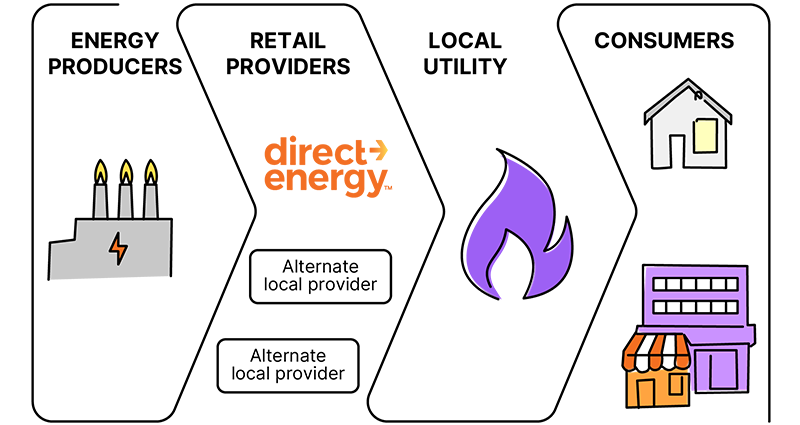What is a utility company?
In a deregulated market, the utility company is the company that owns and maintains the lines, wires, poles and transformers that deliver electricity and gas to homes and buildings. The utility company is responsible for checking meters, restoring power after severe weather and emergencies, and fixing gas leaks.
As it was before deregulation, it's the norm for a single utility company to serve a large geographical area. In some parts of the United States, utilities compete along with competitive energy providers and act as the default provider for customers who do not choose their own.
If you are unsure as to which utility company services your home or business, you should first consult your electricity or gas bill for this information. If your bill does not tell you which company takes care of the infrastructure in your area, call your energy provider.
It's important to remember who your utility is so you know which company to contact if there's ever a power outage, gas leak, or other emergency in your area. They might not be the company that bills you, but they are an important player in the energy process, since they bring the energy to your home and make sure there's no interruption.
What is a retail energy provider?
Providers, also referred to as competitive suppliers, alternative suppliers or 3rd-party suppliers, are companies that market and sell electricity or gas services directly to customers. In other words, an energy provider buys electricity or gas from power generators, and you buy it from the provider of your choice.
Customers in deregulated markets can typically choose from among several different providers. In Texas, these companies also handle billing and payment processing, and they compete for business in a variety of ways.
The lasting benefit to deregulation in the energy grid is that the consumers hold all the power. You can choose the energy provider that is right for your home and business, and you can switch to another one if your current provider doesn't meet your needs.
How do energy providers compete?
The driving force behind the move toward electricity deregulation was a desire to break up the geographical monopolies that utilities enjoyed. Because customers couldn't take their business elsewhere, utilities lacked an incentive to provide superior customer service or competitive rates.
In a deregulated market, energy providers that don't work hard to earn and keep customers risk losing them to their competitors. In addition to competing based on customer service quality, providers vie for customers with the following:
Lower rates - To attract customers who are focused on the bottom line, some energy providers emphasize their cheap rates.
Variety of plans - Providers offer a mix of fixed-rate plans, variable-rate plans, and plans with flexible payment options. Some plans include special offers, like free electricity on weekends. This allows customers to choose a plan that fits their budget, lifestyle and risk tolerance.
Shared values - Some energy providers reach out to environmentally conscious customers by investing in renewable energy, while others may appeal to customers' sense of charity by sharing profits with local service groups.
Promotions - If you shop around, you're likely to find providers offering sign-on bonuses like cash rebates, consumer electronics and enrollment in rewards programs. To take advantage of these promotions, you'll typically need to commit to a provider for a certain contract period.
Does my state have deregulated energy?
A growing number of states have legalized electricity and natural gas deregulation, but no state is fully deregulated. In some parts of deregulated states, especially rural areas, energy service transmission and billing are still provided by the same company. These companies are usually classified as municipally owned utilities or cooperatives.
In some of these more rural areas, energy choice hasn't yet arrived in part because the sparse populations make it difficult for multiple energy providers to compete in a cost-effective way. But electricity deregulation is always expanding, so areas that don't offer choice today may do so in the future.
Texas deregulated markets:
Dallas | Fort Worth | Houston | Lubbock
Other deregulated states:
View this map showing which states offer electricity deregulation.
Should you call your utility company or your energy provider?
If you have both a utility and a provider, there can be some confusion about who to call for service. The answer depends on the type of service you need.
You should call your utility if:
- You experience an unexpected power outage, gas leak or other issue
- You're having a problem with your meter
- You need to report downed power lines, a gas leak or other emergency
You should contact your energy provider if:
- You want to cancel or change your plan
- You want to transfer your service to a new address
Depending on your state, you may still receive a bill from your utility even if you've chosen your own competitive supplier. You'd contact whoever you receive your bill from for billing issues and questions such as:
- You want to make a payment over the phone
- You have questions or disputes about billing
If you're moving to a deregulated electricity state from a regulated state, it can be a bit of an adjustment to rely on 2 companies for your electrical service. But because electrical providers are competing to win your business, you can expect to pay less and get more.

